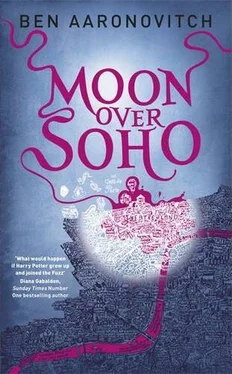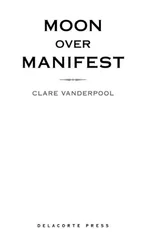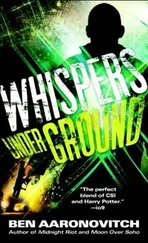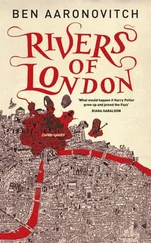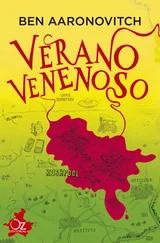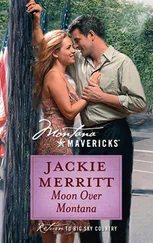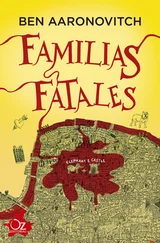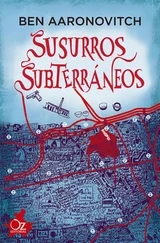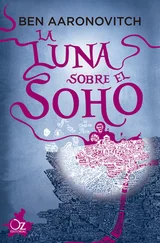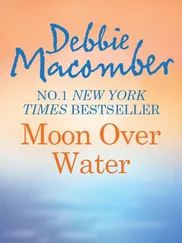“No,” I said. “It’s being held in place by the egg alone.”
“Is that even possible?” asked Nightingale.
“With Molly’s cooking,” I said, “who knows.”
We both looked around to make sure Molly wasn’t listening. Up until that morning Molly’s repertoire had been strictly British public school: lots of beef, potatoes, treacle, and industrial quantities of suet. Nightingale had explained once, when we were out having Chinese, that he thought Molly was drawing her inspiration from the Folly itself. “A sort of institutional memory,” he’d said. Either my arrival was beginning to change the “institutional memory” or more likely she’d noticed me and Nightingale sloping off for illicit meals with other restaurants.
The eggs Benedict was her attempt to diversify the menu.
I picked up the fork, and the egg, the muffin, and what I assumed was the hollandaise sauce lifted off the plate in one rubbery mass. I offered it to Toby who sniffed it once, whined, and then hid under the table.
There was no kedgeree that morning, or sausages, or any poached eggs not smothered in vulcanized hollandaise sauce, not even toast and marmalade. Obviously the culinary experimentation had so exhausted Molly that the rest of breakfast was off the menu. The coffee was still good, though, and when you’re going over your case files that’s the important thing.
Murder investigations start with the victim because usually in the first instance that’s all you’ve got. The study of the victim is called victimology because everything sounds better with an ology tacked on the end. To make sure that you make a proper fist of this, the police have developed the world’s most useless mnemonic: 5 x WH & H . Otherwise known as Who? What? Where? When? Why? & How? Next time you watch a real murder investigation on the TV and you see a group of serious-looking detectives standing around talking, remember that what they’re actually doing is trying to work out what sodding order the mnemonic is supposed to go in. Once they’ve sorted that out the exhausted officers will retire to the nearest watering hole for a drink and a bit of a breather.
Fortunately for us on the first question — Who is the victim? — Stephanopoulis and the Murder Team had done most of the heavy lifting. Jason Dunlop had been a successful freelance journalist, hence his membership in the Groucho Club. His late father had been a senior civil servant and had sent the young Jason to a second-tier independent school in Harrogate. He’d read English at Magdalen College, Oxford, where he was an undistinguished student before graduating with a matching undistinguished second. Despite this poor academic performance he walked straight into a job at the BBC, where he was first a researcher and then a producer on Panorama . After a stint working for, of all things, Westminster Council in the 1980s, he moved back into journalism writing articles for the Times , the Mail , and the Independent . I leafed through some of the clippings; lots of articles of the you-send-me-on-holiday-I’ll-write-you-a-good-review variety. Family holidays with wife Mariana, a PR executive, and their two golden-haired kids. As Stephanopoulis had told me, the marriage had recently collapsed, lawyers had already been engaged, and custody of the children was an issue.
“It would be nice to talk to the wife,” said Nightingale. “See if she knows anything about his hobbies.”
I checked the transcripts of the interview with the wife but there was nothing about an unwholesome interest in the occult or supernatural. I made a note to add this to the wife’s nominal file on HOLMES and suggest she be reinterviewed on that subject. I flagged it for Stephanopoulis, but she wasn’t going to let us talk to the wife unless we came up with something serious.
“Very well,” said Nightingale. “We’ll leave all the mundane connections in the capable hands of the detective sergeant. I think our first move should be to track down the source of the book.”
“I figured Dunlop stole it from the Bodleian Library,” I said.
“That’s why you shouldn’t make assumptions,” said Nightingale. “This is an old book. It could have been stolen prior to Dunlop arriving at Oxford and then come into his possession by some other route. Perhaps the person who trained him.”
“Assuming he was a practitioner,” I said.
Nightingale tapped his butter knife on the plastic-wrapped copy of the Principia Artes Magicis . “Nobody carries this book by accident,” he said. “Besides, I recognize the other library mark. It’s from my old school.”
“Hogwarts?” I asked.
“I really wish you wouldn’t call it that,” he said. “We can drive up to Oxford this morning.”
“You’re coming with me?” Dr. Walid had been very clear about the whole taking-it-easy thing.
“You won’t get access to the library without me,” he said. “And it’s time that I started introducing you to people connected to the art.”
“I thought you were the last?”
“There’s more to life than just London,” said Nightingale.
“People keep saying that,” I said. “But I’ve never actually seen any proof.”
“We can take the dog,” he said. “He’ll enjoy the fresh air.”
“We won’t,” I said. “Not if we take the dog.”
FORTUNATELY, DESPITE the overcast, the day was warm, so we could head up the A40 with the windows down to let out the smell. Truth be told the Jag isn’t that comfortable as a motorway car, but there was no way I was heading into a rival jurisdiction in the Ford Asbo — standards have to be maintained, even with Toby in the backseat.
“If Jason Dunlop was trained,” I said as we climbed on to the Great West Road, “then who was his teacher?”
We’d discussed this before. Nightingale said it was impossible to pick up organized “Newtonian” magic on your own. Without someone to teach you the difference, vestigia are hard to distinguish from the random background noise of your own brain. The same was true of the forma; Nightingale always had to demonstrate the form to me before I could learn it. To teach them to yourself you’d have to be the kind of insane monomaniac who’d deform his own eyeball to test his theories on optics — in short, someone like Isaac Newton.
“I don’t know,” said Nightingale. “After the war there weren’t that many of us left.”
“That should narrow down the suspects,” I said.
“Most of the survivors would be very old by now,” said Nightingale.
“What about other countries?” I asked.
“None of the continental powers came out of the war intact,” said Nightingale. “The Nazis rounded up any practitioners they could find in the occupied countries and killed any who refused to be co-opted. Those who didn’t die on their side mostly died fighting against them; same is true of the French and the Italians. We always believed that there was a Scandinavian tradition but they kept it very quiet.”
“What about the Americans?”
“There were volunteers right from the start of the war,” said Nightingale. “The Virtuous Men they called themselves — out of the University of Pennsylvania.” Others had arrived in the years following Pearl Harbor, and Nightingale had always had the impression that there was some deep animosity at work between them and the Virtuous Men. He thought it was doubtful that any of them could have returned to Britain after the war. “They blamed us for Ettersberg,” he said. “And there was an agreement.”
“Well of course there was,” I said. There was always an agreement.
Nightingale claimed he’d have spotted them if they’d started practicing in London. “They were hardly what you’d call subtle,” he said.
Читать дальше
